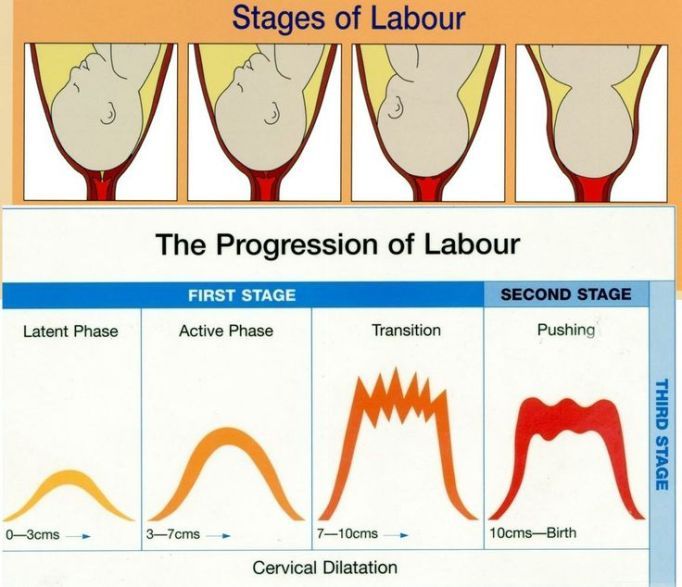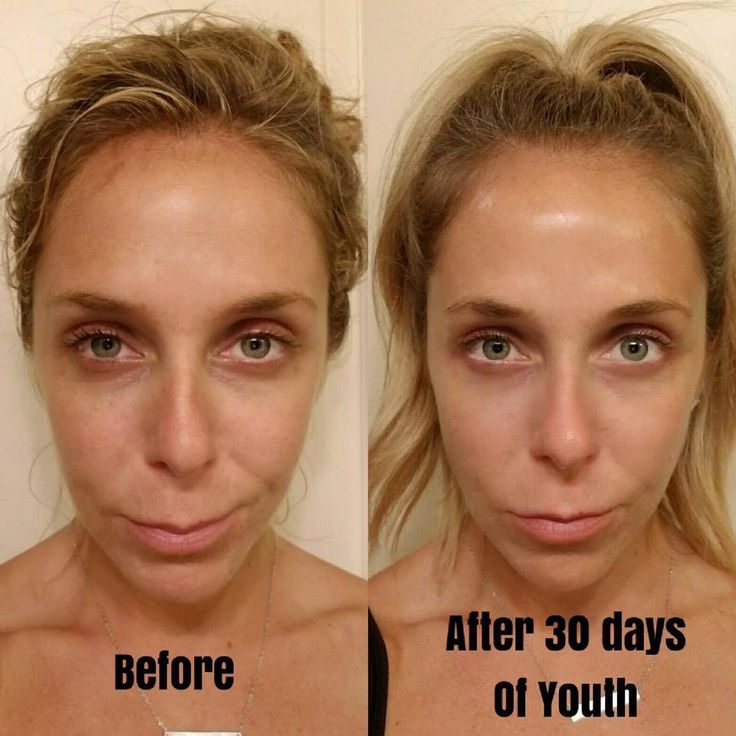How to deal with child custody
Understanding Child Custody | How Custody Decisions Are Made
To understand possible child custody outcomes, you’ll want to learn about the types of custody, who makes decisions about the children, and what factors affect visitation rights.
For many parents, figuring out child custody is one of the most difficult—and most important—parts of a divorce. When children are involved, either the court must decide or the parents must agree on how to handle issues like whether and how custody will be shared, who will make decisions for the kids, and how visitation will work.
Here's an overview of key child custody information for divorcing parents, plus answers to some of the most frequently asked custody questions.
- Types of Custody Arrangements
- Who Decides Custody
- How Courts Make Custody Decisions
- How to Modify a Custody Arrangement
- Child Custody FAQ
Types of Custody Arrangements
There's no one-size-fits-all custody arrangement; the terms of your final custody plan are supposed to be tailored to meet the needs of your family.
The final custody order should normally address both physical custody (which parent the child lives with) and legal custody (which parent has the right and obligation to make decisions about the child's upbringing).
Most custody orders divvy up custody in one of the following ways:
- sole legal custody and sole physical custody to one parent
- sole physical custody and joint (shared) legal custody
- joint physical custody and joint legal custody, or
- sole legal custody and joint physical custody (rare).
When an order specifies that one parent has sole physical custody, the judge will typically create a visitation schedule to ensure the child has the opportunity to enjoy a meaningful relationship with the noncustodial parent.
Who Decides Custody?
As is the case with most family law issues, courts will give a lot of weight to any agreements that parents reach regarding child custody. If parents can work together to achieve a fair and proper custody arrangement, the judge will likely adopt it into a court order. Working together is the best opportunity for parents to control what happens to their families after a separation or divorce.
Working together is the best opportunity for parents to control what happens to their families after a separation or divorce.
If you've tried talking with your spouse or participated in child custody mediation, but you still disagree on how to allocate custody and visitation, the court will decide for you. In most states, the judge must investigate and apply specific factors to every custody decision. Once the judge enters a child custody order, it is binding on and enforceable by both parents, even if one disagrees.
How Courts Make Custody Decisions
Almost all courts use a standard that gives the "best interests of the child" the highest priority when deciding custody issues. What a judge considers to be in the best interests of the child depends on many factors, including:
- the child's age, sex, and mental and physical health
- each parent's mental and physical health
- each parent's lifestyle and other social factors,
- the emotional bond between each parent and child, as well as each parent's ability to give the child guidance
- each parent's ability to provide the child with food, shelter, clothing, and medical care
- the child's established living pattern (school, home, community, religious institution)
- the quality of the child's education in the current situation
- the impact on the child of changing the status quo, and
- the child's preference if the child is mature enough to express an opinion.
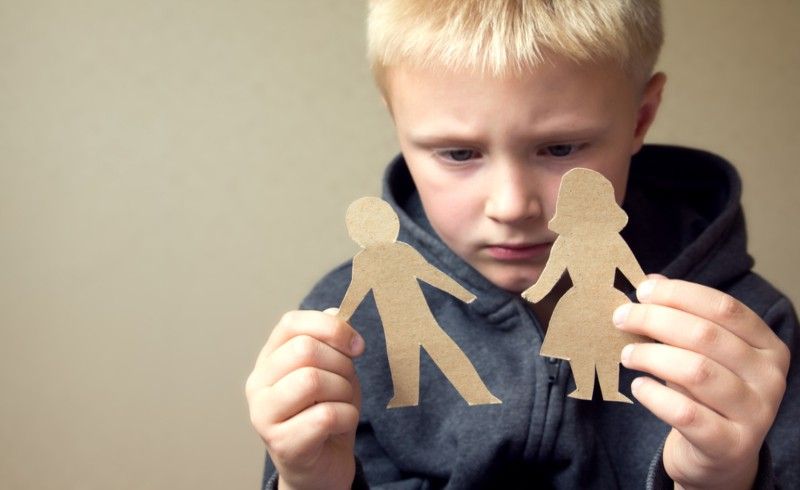
Assuming that none of these factors favors one parent over the other, most courts tend to focus on which parent is likely to provide the child with a stable environment and better foster the child's relationship with the other parent. When the child is young, this might mean awarding custody to the parent who has been the child's primary caregiver. With an older child, the court's best interests evaluation might lean in favor of the parent who can foster continuity in education, neighborhood life, religious life, and peer relationships.
In tough child custody cases—such as those where one parent is claiming that the other is "unfit"—judges might order a child custody evaluation. Parents can request a custody evaluation even when a judge doesn't. A child custody evaluator can provide information and recommendations that will help the judge decide what's in the child's best interests.
How to Modify a Custody Arrangement
In nearly every state, one of the main priorities for judges is to maintain stability for the child when deciding custody matters. This strong preference to maintain the status quo can make it difficult—but not impossible—for parents to modify existing custody orders; judges understand that changing family circumstances might require updating the current orders.
This strong preference to maintain the status quo can make it difficult—but not impossible—for parents to modify existing custody orders; judges understand that changing family circumstances might require updating the current orders.
To modify custody or visitation, most states require the requesting parent to demonstrate that there's been a substantial change in circumstances. Additionally, the parent must also show that the current order no longer serves the child's best interests. If the court agrees to review the case, the judge will review the changed circumstances in light of the same best interest standards that are listed above.
Child Custody FAQ
Does custody always go to just one parent?
No. Courts frequently award at least partial custody to both parents, called "joint custody." Joint custody takes one of three forms:
- joint physical custody (children spend a substantial amount of time with each parent)
- joint legal custody (parents share decision-making on medical, educational, and religious questions involving the children), or
- both joint legal and joint physical custody.
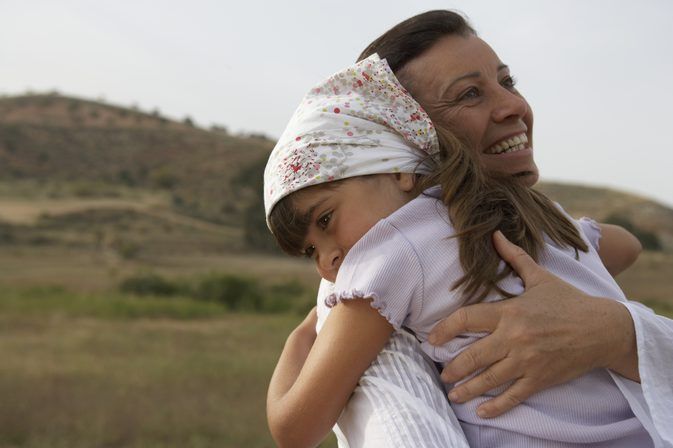
In some states, like New Mexico, the law requires courts to award joint custody, except where joint custody would compromise the children's best interests (or a parent's safety). (N.M. Stat. Ann. § 40-4-9.1 (2021).) Many other states expressly allow courts to order joint custody, even if one parent objects to such an arrangement.
Are courts more likely to award custody to mothers than to fathers?
In the past, many states provided that the court should order the custody of young children (five and under) to the mother. Today, however, most states and courts have either rejected this preference entirely or relegated it to tiebreakers' role if two equally fit parents request custody of their preschool children. Today, no state requires that a judge award a child to the mother without regard to both parents' fitness. Instead, most states now require the court to determine custody based solely on what's in the children's best interests, without regard to the parent's gender.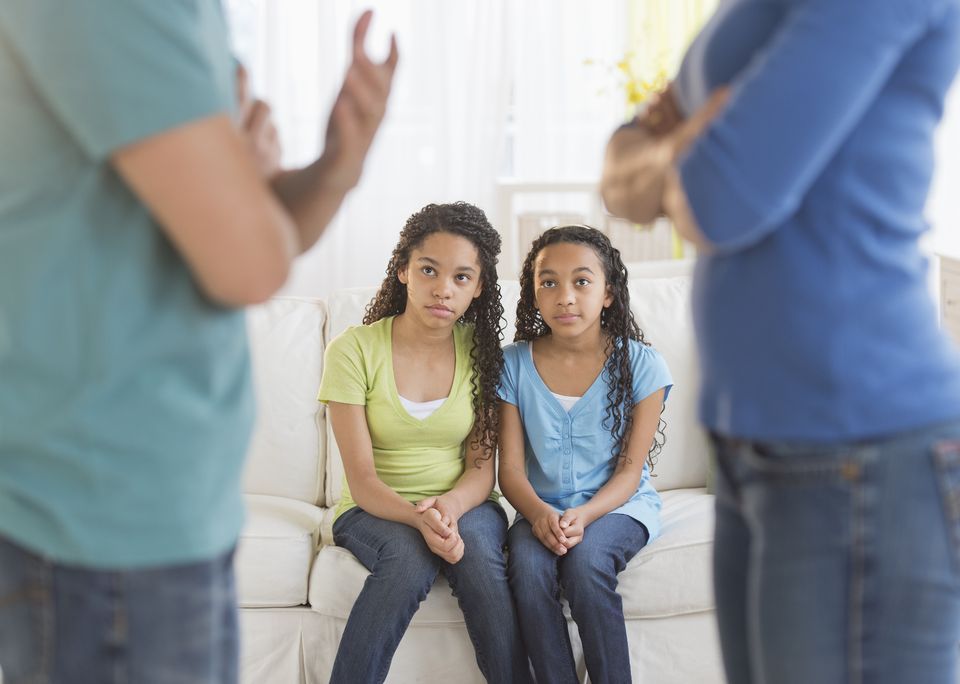
If you are a father and want to ask the court for physical custody, do not let gender stereotypes stop you. If both you and the mother work full-time, and the kids have after-school care, you might be on equal footing when it comes to who is better situated to have physical custody. In fact, if you have more flexible hours than the mother, you might have an advantage. In any event, the judge will look at what's best for the children. So if you think that you should have primary custody and that you can persuade the judge that it's in the kids' best interests, you should go ahead and ask for custody. If you present yourself as willing and able to parent, it will go a long way toward eliminating any lingering prejudice against you as a father.
As it turns out, many divorcing parents will work together to determine what's best for the child after they separate or divorce. For example, some couples might agree that a mother will have custody and that the father will have reasonable visitation because the mother has more time, a greater inclination, or a better understanding of the child's daily needs. Judges usually approve any custody agreements entered into by divorcing parents unless they are not in the best interests of the child.
Judges usually approve any custody agreements entered into by divorcing parents unless they are not in the best interests of the child.
If one parent moves out and leaves the kids with the other parent, does it hurt the moving parent's chances of getting custody at a later date?
It can. Even when a parent leaves to avoid a dangerous or highly unpleasant situation (such as domestic violence), if the parent hopes to have physical custody later, it's unwise to leave the child behind without a firm, written agreement between the parents stating that the arrangement is temporary. Otherwise, the court might interpret the parent's move as a message to the court that the other parent is better suited to have permanent physical custody of the child.
Also, if the children stay in the home where the parents lived as a family, continue in the same school, and participate in their usual activities after a parent moves out, a judge might be reluctant to change physical custody. Any further change might be viewed by the court as an unnecessary disruption in the children's routines.
Suppose a parent must leave the familial home but wants to be the children's primary physical custodian. If the parents don't have an agreement that the move is temporary and won't affect permanent custody, the moving parent should take the children along and, as quickly as possible, file a motion (request) in family court for temporary custody and child support orders.
If the parent who moves out doesn't file quickly, the other parent might go to court first and allege that the children were wrongfully taken. Family law judges frown on a parent who removes the children from home without seeking the court's recognition. A judge might order that the parent return the children to the family home, pending future proceedings to determine physical custody.
For more articles and FAQ about child custody and visitation, see Child Custody, Child Support & Visitation.
Are there special issues if a gay or lesbian parent is seeking custody or visitation rights?
Generally, the court will consider a parent's sexual orientation only if it negatively impacts the child. For example, suppose a child's parent enters into an abusive relationship with a same-sex partner, causing the child to experience domestic violence that requires frequent moves between homes, hospitalizations, or police intervention. In that case, the court is less likely to award custody to that parent. Instead, the court will allocate parental responsibility to the other parent if the judge finds that parent to be "fit" under the law.
For example, suppose a child's parent enters into an abusive relationship with a same-sex partner, causing the child to experience domestic violence that requires frequent moves between homes, hospitalizations, or police intervention. In that case, the court is less likely to award custody to that parent. Instead, the court will allocate parental responsibility to the other parent if the judge finds that parent to be "fit" under the law.
However, lesbian, gay, or transgender parents might still experience discrimination from judges who can't set aside their own prejudices when evaluating what's in a child's best interests. These judges might be motivated by their own or community prejudices and might try to conceal the true reasons for their decisions by citing issues other than the lesbian or gay parent's sexual orientation to deny custody or appropriate visitation.
If you are involved in a custody case and are concerned about sexual orientation or sexual identity bias, make sure you consult a lawyer about protecting your rights.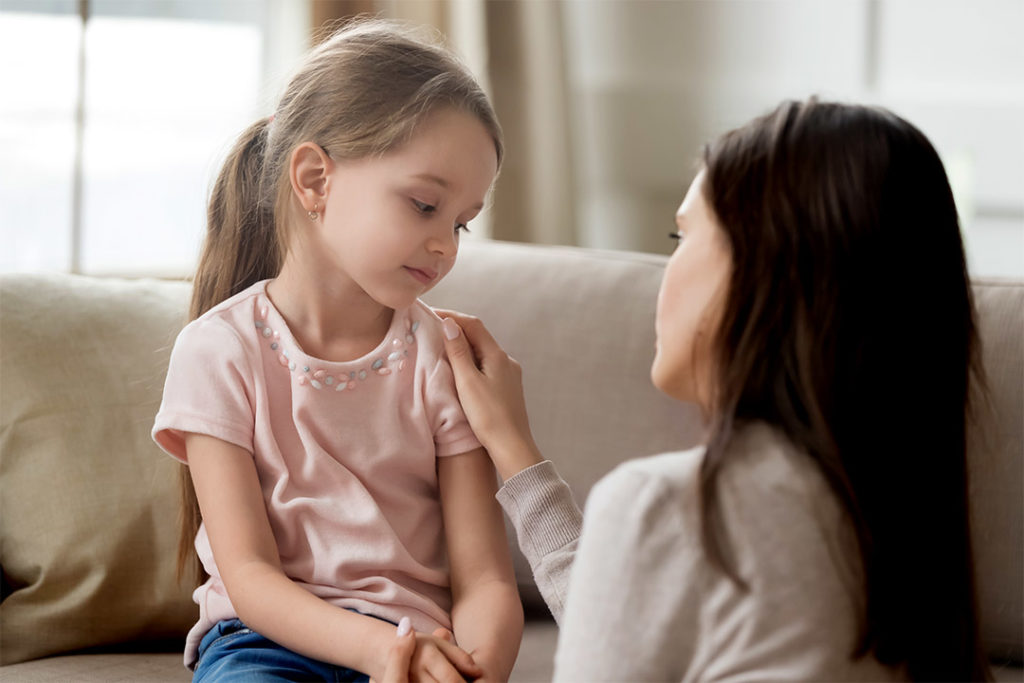 You can get attorney referrals from the National Center for Lesbian Rights.
You can get attorney referrals from the National Center for Lesbian Rights.
To learn more about legal issues affecting lesbian and gay parents and couples, check out our LGBTQ law section.
Is race ever an issue in custody or visitation decisions?
Judges can't consider the race of the parents when deciding custody or visitation. The U.S. Supreme Court has ruled that it is unconstitutional for a court to consider race when a noncustodial parent petitions for a change of custody. In Palmore v. Sidoti, 466 U.S. 429 (1984), a white couple divorced, and the court awarded custody of the couple's son to the mother. She remarried an African American man and moved to a predominantly African American neighborhood. The father filed a request to modify custody based on the changed circumstances from the marriage and the move. A Florida court granted the modification, but the U.S. Supreme Court reversed, ruling that societal stigma, especially related to race, cannot be the basis for a custody decision.
Who determines how much visitation is reasonable and fair?
When a court awards physical custody to one parent and "reasonable" visitation to the other, the parent with physical custody generally has the power to decide when and how much visitation is reasonable. In other words, unless the parents have a specific calendar or schedule, a noncustodial parent's visitation is often affected by the relationship between the parents. When a custodial parent wants the child to have a meaningful relationship with the other parent, it's more likely that the parents will work together to ensure that there's a truly reasonable visitation arrangement.
Unfortunately, an order that one parent is to have "reasonable" visitation can result in the noncustodial parent having to fight for time with the child. To avoid this problem, many courts require parents to work out a fairly detailed parenting plan that sets the visitation schedule and outlines who has responsibility for decisions affecting the children. When parents can't agree, the court will create a schedule for the parents to follow. Standard visitation arrangements often include alternating weekends, school breaks, and holidays that occur during the school year, as well as significant visitation in the summer.
When parents can't agree, the court will create a schedule for the parents to follow. Standard visitation arrangements often include alternating weekends, school breaks, and holidays that occur during the school year, as well as significant visitation in the summer.
Is mediation the best approach to solving disagreements about child custody?
Child custody mediation is a non-adversarial process where a trained, neutral professional (called a mediator) meets with parents to help them reach an agreement about custody and visitation. The mediator does not have the power to make decisions for the parties. Instead, the mediator facilitates negotiations and might suggest solutions. Mediation is confidential—what the parties say in mediation can't be used in court.
Mediation is often a better option than litigation (fighting it out in court) for resolving custody and visitation disputes. That's because:
- parents usually don't have to hire lawyers or expert witnesses (or pay their fees)
- mediation usually results in a faster resolution to the disagreement—child custody litigation can drag on for months or even years, and
- mediation encourages communication and makes it more likely that the parents will cooperate when future issues arise.
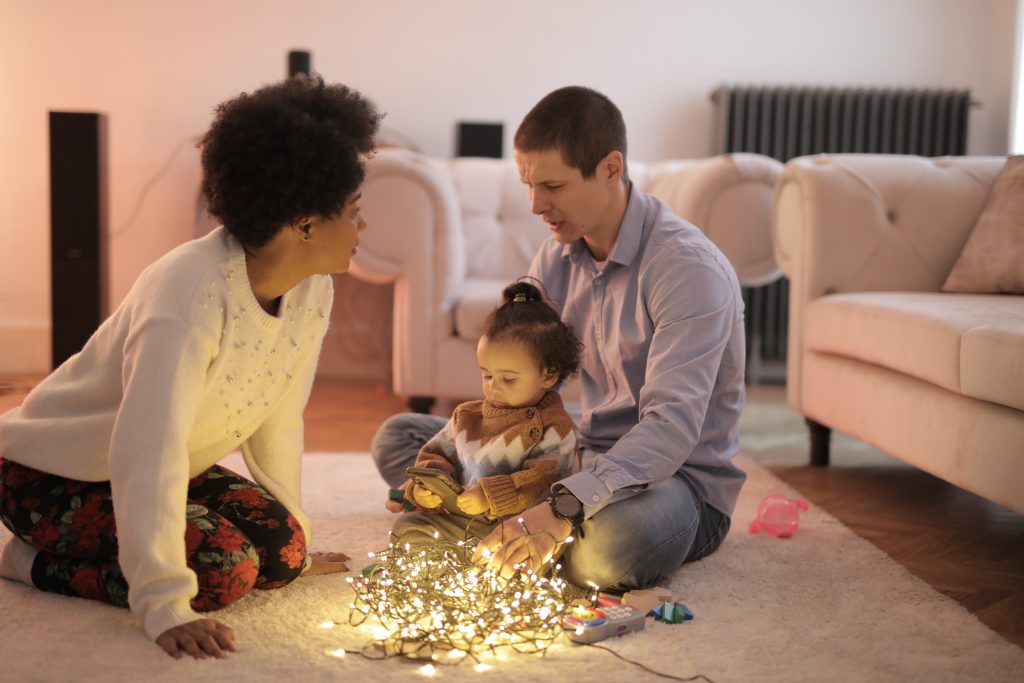
Experts who have studied the effects of divorce on children universally conclude that when divorcing or separating parents can cooperate, the children suffer far less.
Child Custody, Visitation, and Support Issues When an Unmarried Couple Separates
How to deal with custody, support, and other parenting issues when you and your unmarried partner end your relationship.
Married or not, one thing never changes—when you split up, it's vital for your kids' current and future well-being that you try to reach a compromise about issues of custody, visitation, and support. Doing this in a constructive, humane way may be a great challenge. But, your ability to get along civilly—if not cheerfully—is the biggest gift you can give your children. Sometimes this can be accomplished through open discussions between the two of you. In other situations it will require counseling, therapy, or mediation. No matter how scary or messy breaking up can sometimes be, as long as you are each determined to avoid a contested court battle and willing to put your egos aside in an effort to work together in the best interests of your child, you should be able to work out even the toughest parenting issues.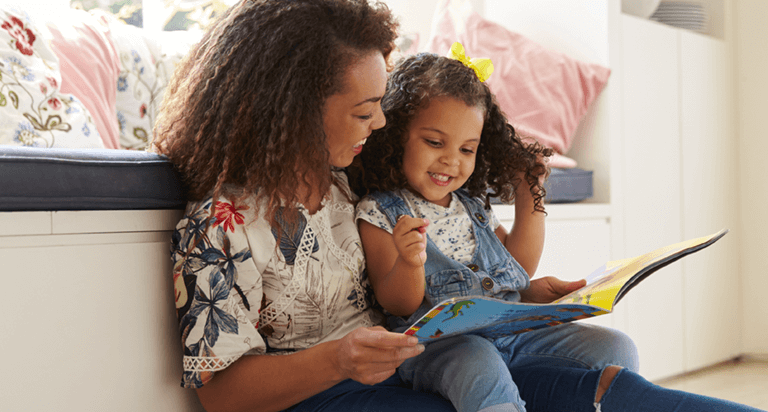
If you can't reach an early compromise on the issues of custody (who has legal authority over the child and where does the child live), visitation (how often and under what conditions does the noncustodial parent spend time with the child), and child support (whether the noncustodial parent contributes anything to the costs of raising the child), you will have to submit your dispute to the court system.
While the specific rules for child custody and visitation differ from state to state, here is a general overview. For more specific details, see the articles in the Child Custody, Child Support & Visitation section of the Divorce & Family Law area of Nolo's website.
The Rights of Unmarried Parents Who Are Both Legal Parents
If both of you are legal parents of the child—either because you are both biological parents, because you have jointly adopted your child, or because the nonbiological parent has been able to obtain a legally valid stepparent or second-parent adoption—your child-related disputes will normally be handled in the same way as if you were a divorcing married couple. You may be required to attend mediation sessions or submit to an investigative process with county personnel. After listening to a county social worker's report about each of your parenting abilities and home situations, the local family court judge will have great discretion to make child custody and visitation decisions. The legal standard the judge will always follow is the "best interests of the child." In most states you can propose your own custody and visitation arrangements. If the judge believes these to be sensible (and especially if you both agree to follow them), the court will often approve your proposal. But if the judge doesn't agree with your proposal, the judge can substitute a modified or even completely different arrangement.
You may be required to attend mediation sessions or submit to an investigative process with county personnel. After listening to a county social worker's report about each of your parenting abilities and home situations, the local family court judge will have great discretion to make child custody and visitation decisions. The legal standard the judge will always follow is the "best interests of the child." In most states you can propose your own custody and visitation arrangements. If the judge believes these to be sensible (and especially if you both agree to follow them), the court will often approve your proposal. But if the judge doesn't agree with your proposal, the judge can substitute a modified or even completely different arrangement.
In many states the court will order that both legal parents retain custody (sometimes called joint, or shared, legal custody). This means each parent has equal authority over the key decisions in the child's life (such as education and medical care), as well as a legal obligation to care for and support the child.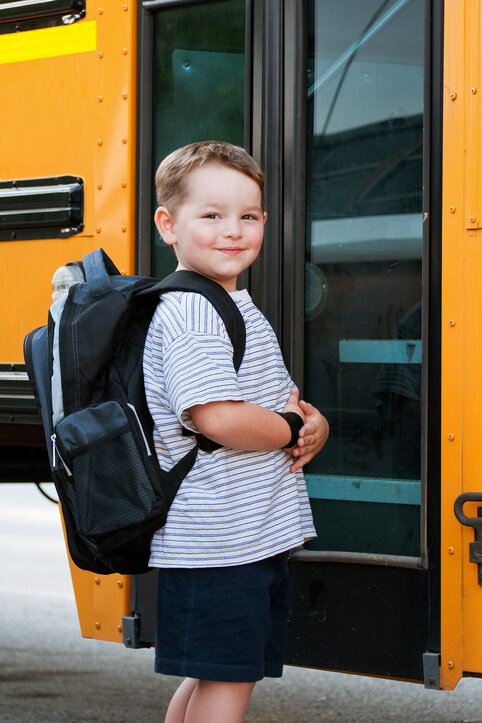 Physical custody (where the child lives) is typically shared, with the child spending some days or weeks with one parent and living with the other parent at other times. In other states the court will award both parents "joint legal custody," but stipulate that one parent will be the "primary physical custodian." In still other states, it is far more common for the court to award one parent "primary physical custody," while the other is given "reasonable rights of visitation." But no matter what the legal description, the usual practical result is that the parent who isn't the primary caretaker during the school week is granted liberal rights to spend weekends or other time with the child (called visitation) unless there is a strong reason why this would be detrimental to the child.
Physical custody (where the child lives) is typically shared, with the child spending some days or weeks with one parent and living with the other parent at other times. In other states the court will award both parents "joint legal custody," but stipulate that one parent will be the "primary physical custodian." In still other states, it is far more common for the court to award one parent "primary physical custody," while the other is given "reasonable rights of visitation." But no matter what the legal description, the usual practical result is that the parent who isn't the primary caretaker during the school week is granted liberal rights to spend weekends or other time with the child (called visitation) unless there is a strong reason why this would be detrimental to the child.
For more details on child custody, see the article How Living Together Affects Custody of Children on this site.
VisitationLike custody, you and your former partner can make visitation arrangements voluntarily.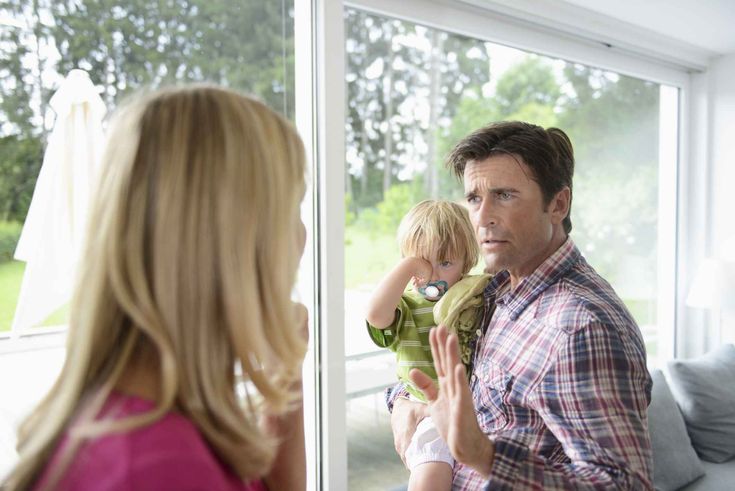 However, if your efforts are frustrated by the actions of the other parent (or someone else with physical custody of the child), you will have to file a court action and request that a judge order visitation.
However, if your efforts are frustrated by the actions of the other parent (or someone else with physical custody of the child), you will have to file a court action and request that a judge order visitation.
In every state, both legal parents are required to support their children, regardless of whether they were married when the child was born. When it comes to supporting a child financially, if parental incomes are unequal—or if one parent is shouldering most of the costs of taking care of the child—the family law court will order the noncustodial parent to contribute a specified sum of money to the costs of childrearing (called child support), often by referring to published guidelines establishing minimum levels of support. The family law court will retain the right to modify this amount should parental incomes or the needs of the children change.
The amount of child support awarded will depend on how much each parent makes and spends on housing, health care, and other necessary child-related expenses, including dental bills and private school tuition.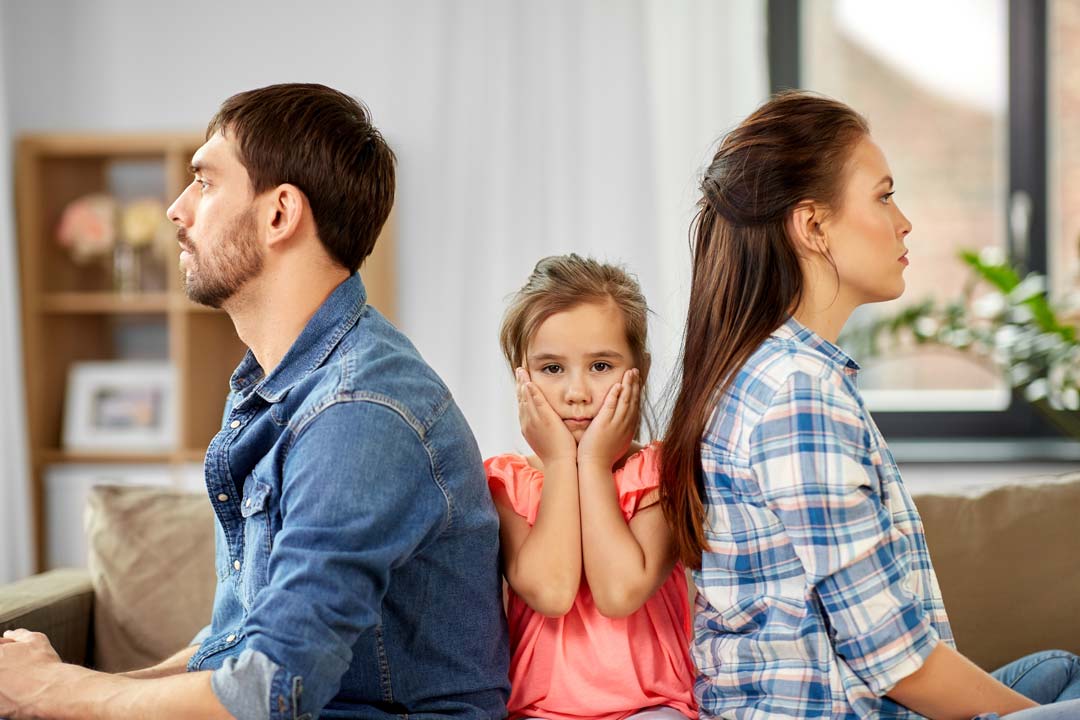 The monthly amount can vary widely, and each state has its own child support guidelines that are set by statute. We encourage you to learn what the court would likely order in your particular situation, so that you have an idea of where to start in the negotiation process.
The monthly amount can vary widely, and each state has its own child support guidelines that are set by statute. We encourage you to learn what the court would likely order in your particular situation, so that you have an idea of where to start in the negotiation process.
If support isn't paid voluntarily, the parent with custody or someone acting on the child's behalf (such as the welfare department) can sue the noncustodial parent to obtain a court order setting the amount of child support the noncustodial parent must pay. If the father doesn't pay, but has the ability to do so, the district attorney can prosecute him under criminal laws. County jails are full of fathers who don't take their support obligations seriously.
For more details on legal requirements regarding child support, see the article How Living Together Affects Child Support Payments on this site.
Legal Rights of Nonlegal Parents
Where only one person in an unmarried couple is the legal parent (for example, you came along after your partner's child was born and did not adopt the child), the legal situation is very different. In most states, the nonlegal parent has few legal rights, and in a few states, none at all. This is usually true even if the nonlegal parent has helped raise the child for many years and is a primary giver of care and emotional support.
In most states, the nonlegal parent has few legal rights, and in a few states, none at all. This is usually true even if the nonlegal parent has helped raise the child for many years and is a primary giver of care and emotional support.
Fortunately, an increasing number of states are beginning to recognize the right of nonlegal parents to visit the children they have helped raise; Ohio, Virginia, and Wyoming allow "any interested person" to bring an action for visitation, and Arizona allows visitation to persons who act as parents to a child. A few courts have even awarded custody to the nonlegal parent, especially where that person was the primary caregiver. And when the natural parent is unfit or deceased, it is more likely for courts to give the nonlegal parent a major child-rearing role (and sometimes to prefer the nonlegal parent to grandparents or other blood relatives).
Because the law does not fully recognize their relationship with the child, nonlegal parents rarely have any financial obligations to their partner's children.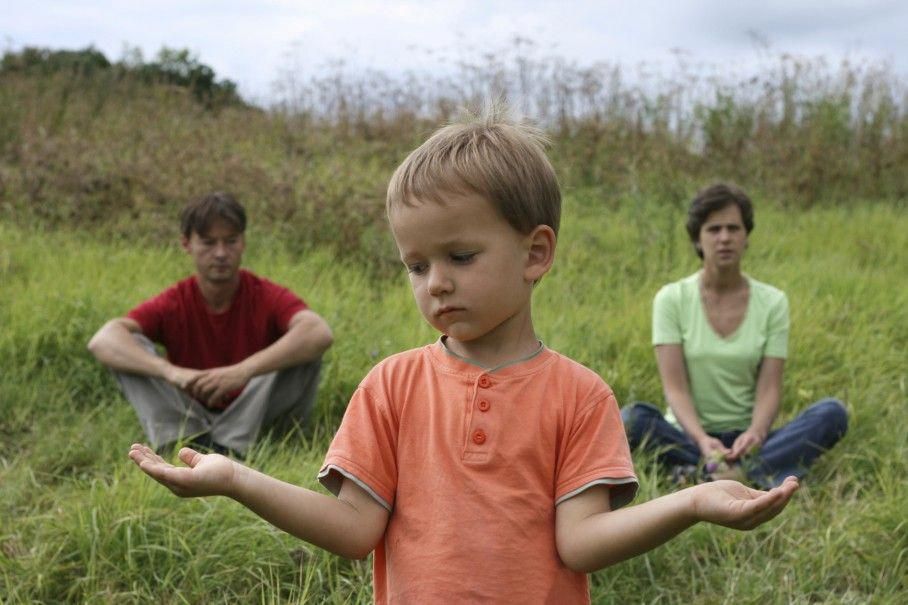 And where a nonlegal parent offers to help support the children in exchange for visitation or custody rights, most courts say no.
And where a nonlegal parent offers to help support the children in exchange for visitation or custody rights, most courts say no.
In some states, second-parent adoption may be available even if you and your partner are not living together any more. If the legal parent is willing to formalize the nonlegal parent's relationship with the child, consult a lawyer about whether a second-parent adoption is a possibility. If it is, you can incorporate a paragraph to the effect that you intend to complete a second-parent adoption into the sample parenting agreement included here.
If you are being denied the right to continue actively participating in the life of a child you have helped raise, your first step should be to attempt to work with the legal parent to create a practical arrangement that meets the child's needs as well as yours. Failing this, you will need to consider whether it makes sense to attempt to achieve your goals by going to court. But before you do, you'll want to do the necessary legal research in your state or consult a family law attorney to see if your state allows you to present a claim for visitation or partial custody if you are not a legal parent, and what procedures you must follow.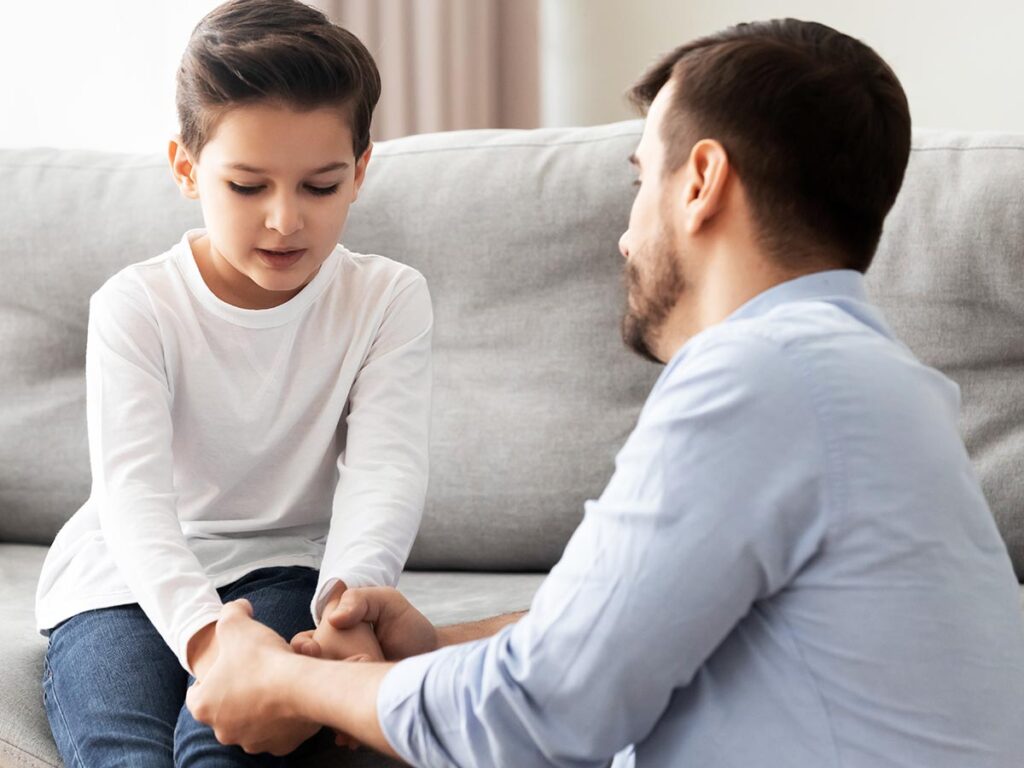
If you are the legal parent and you are facing a custody and visitation challenge from your former partner, make your children's emotional needs—not yours—the highest priority. If your children want to remain in close contact with your ex (who they may have lived with for many years), put their wishes before your own. Of course, if you truly believe that your former partner's interaction with your kids will be seriously harmful, by all means resist his or her claims for custody or visitation.
Parenting Agreements for Children of Unmarried Couples
Because unmarried couples don't get divorces, judges and lawyers aren't necessarily involved in the child-raising issues. Unmarried couples can make their own parenting agreements covering child support, custody, and visitation issues, either on their own or with the help of a mediator or family law counselor. If it's possible, this is the best approach. Be mindful, however, that if the physical or financial well-being of your child is at risk, most courts will not consider themselves bound by your agreement, and may order modifications or additional obligations. Also, if court proceedings are likely, you're unclear about your rights, or there's conflict between you and the other parent over key issues involving your child, consult an experienced family law attorney.
Also, if court proceedings are likely, you're unclear about your rights, or there's conflict between you and the other parent over key issues involving your child, consult an experienced family law attorney.
It's a good idea to approach your agreement with a spirit of flexibility and openness. Also, no custody, support, or visitation agreement—even one ordered by a judge—is ever permanently binding. An amount of child support that seems fair and adequate today may not be enough tomorrow. Custody with one parent may work brilliantly for a year and then sour. Your agreement must be a statement of needs and expectations that lays a solid foundation for the changes and additions that will surely come.
Included here are examples of two parenting agreements you can use as models to write your own:
• Parenting Agreement (Both Parents Are Legal Parents), and
• Parenting Agreement (Only One Parent Is a Legal Parent).
Be sure you both date and sign any agreement you reach and each keep a copy.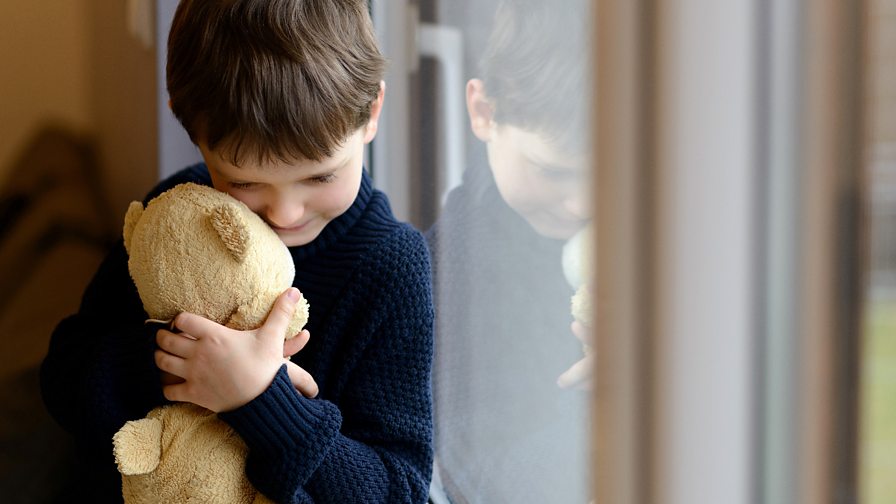 It's a good idea to have your signed agreement notarized if you anticipate any future need (in court or arbitration) to prove that the signatures on the agreement are not forged.
It's a good idea to have your signed agreement notarized if you anticipate any future need (in court or arbitration) to prove that the signatures on the agreement are not forged.
Building a Parenting Agreement That Works: How to Put Your Kids First When Your Marriage Doesn't Last, by Mimi Lyster (Nolo), is an excellent resource for preparing and negotiating a comprehensive parenting agreement covering custody and visitation. We highly recommend you read this when preparing your own agreement.
It turns out to be very difficult to take custody of the children of deceased relatives. Why?
Preliminary guardianship (guardianship) in accordance with Article 12 of Federal Law No. 48-FZ is a kind of guardianship (guardianship), which is established in a simplified manner in cases where, in the interests of a minor left without parental care, it is necessary to immediately appoint a guardian to him (trustee) in connection with the inadvisability of placing a child in an organization for orphans and children left without parental care.
“I don't need a daughter”
A year ago, a resident of the Kemerovo region accused the PDN and guardianship officers of the death of her one-year-old daughter. A girl with Dandy-Walker syndrome (brain malformation) was taken away from her mother after the doctors who arrived for a scheduled examination on January 16 could not get into the house - the woman was left without a key and asked them to come later.
Since the family was registered as dysfunctional, the doctors called representatives of the guardianship authorities, the juvenile affairs unit (PDN) and the National Guard. As a result, the child was sent to the hospital, where the girl died. Mothers reported that the daughter suffocated while feeding.
“When they took my daughter away, I explained that Ksyusha was choking and she needed to be looked after 24 hours a day. The PDN employee answered me: “No, she doesn’t choke on anything, she’s a normal child.” I knew no one would be there to look after her.
An employee of the PDN also allegedly said in the baby house that I abandoned the child, that I don’t need my daughter, I’m not going to feed her,” Alena said.
Statistics
As such, there are no statistics on the number of child deaths after the removal of a child from the family. There is a general one, which does not take into account the reason why the child ended up in a residential institution. Thus, in 2020, 73 children died in orphanages, including 33 under the age of one year (in 2019d. - 89 died, of which 37 were under the age of one year; in 2018 - 106, of which 59; in 2017 - 105, of which 43; in 2016 - 146, of which 64).
At the same time, hospitalization of children before being placed in an institution for orphans or children left without parental care has recently become a frequent practice. But it is not always justified.
As a result of this approach, the child is in a medical facility for a long time, even if he has blood relatives who are ready to accept him into the family.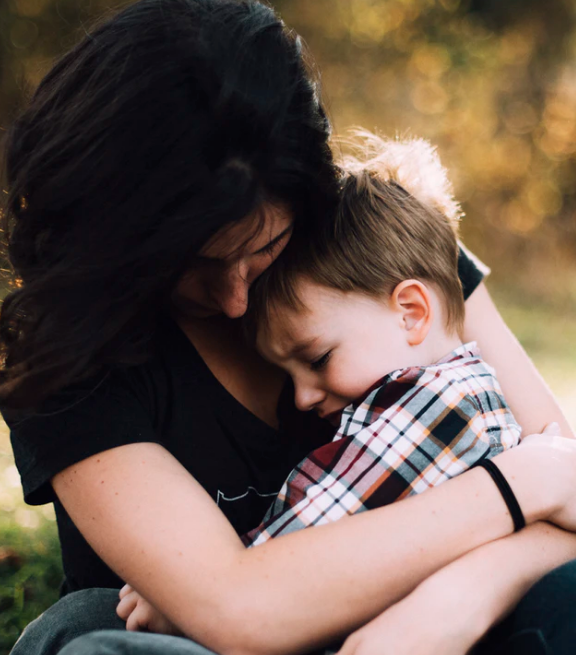 The conditions of the hospital cannot meet the interests of the child, and it is quite natural that then the rights of children to education, upbringing and development are violated.
The conditions of the hospital cannot meet the interests of the child, and it is quite natural that then the rights of children to education, upbringing and development are violated.
In 2020, the Commissioner was approached by a grandmother asking for assistance in returning her four-year-old grandson home and obtaining provisional custody of him. His parents first gave him to his grandmother, and then disappeared. The woman herself turned to the guardianship and guardianship authorities for the legal establishment of guardianship.
However, the child was taken to the hospital under an act of neglect and homelessness and stayed there for more than two weeks due to a formal approach to the situation. Only after the intervention of the commissioner, having issued preliminary custody, the child was transferred to the grandmother.
The office clarifies that sometimes guardianship and guardianship authorities are reluctant to resort to the use of preliminary guardianship.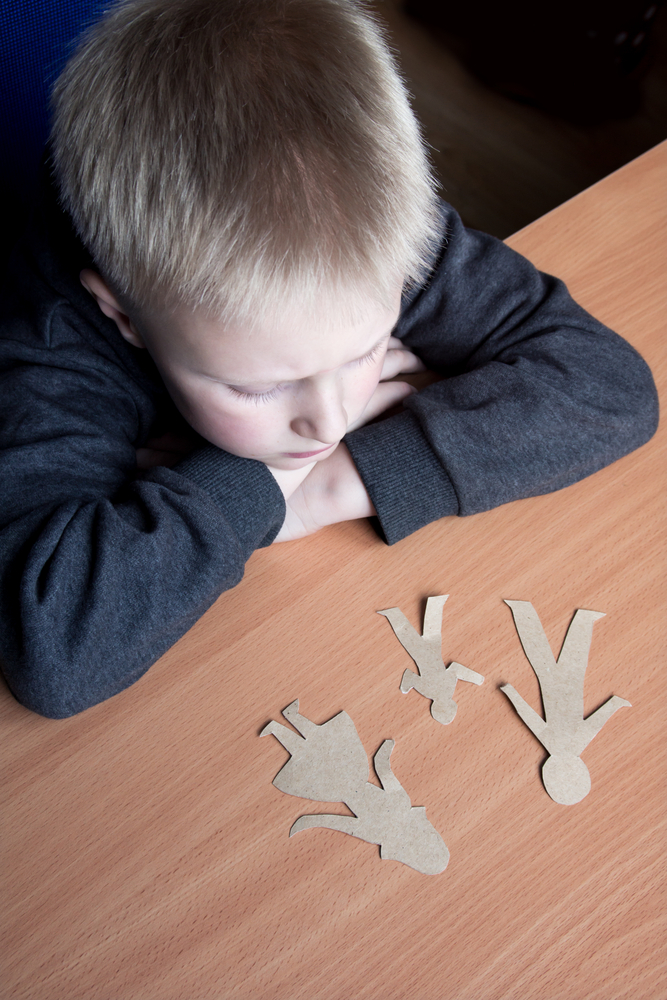 It is difficult to say what this is connected with - perhaps with the desire to play it safe once again or not understanding how difficult it can be for both the related family who wants to accept the child and for himself every day of being in the hospital.
It is difficult to say what this is connected with - perhaps with the desire to play it safe once again or not understanding how difficult it can be for both the related family who wants to accept the child and for himself every day of being in the hospital.
At the same time, the problem of unjustified hospitalization of minors before their placement in an institution or family is in the field of view of several departments. Thus, in 2020, the Ministry of Education, together with the Ministry of Labor, the Ministry of Internal Affairs and the Ministry of Health, prepared and sent a joint letter to the heads of the constituent entities of the Russian Federation on the adoption of comprehensive measures to exclude unjustified hospitalization.
The Ministry of Education has developed a draft model of interagency cooperation, which is currently being tested in nine regions of the country. These are the Trans-Baikal, Krasnoyarsk, Primorsky, Stavropol Territories, Kaliningrad, Moscow, Novosibirsk, Penza, Chelyabinsk regions.
“In the pilot regions, the implementation of the model of interagency cooperation continues. During its testing, not a single case of unjustified hospitalization of children has been recorded so far, which allows us to speak about the effectiveness of this practice. We certainly support this work,” says Maria Lvova-Belova, Ombudsman for Children.
“Two-way traffic is necessary”
It is not uncommon for minors to return to institutions for orphans and children left without parental care, at the initiative of the guardians themselves. This happens, among other things, for the reason that families who have taken custody of a child do not receive sufficient support from specialists.
Under current law, close relatives of a child are not required to be trained for guardianship or guardianship, nor are they required to be trained as an adoptive parent. As a result, they are not always able to cope with difficult situations on their own.
According to official statistics, in 2020, guardianship and guardianship authorities canceled 4,800 decisions to transfer a child to a family, of which 2,854 were initiated by the guardians themselves.
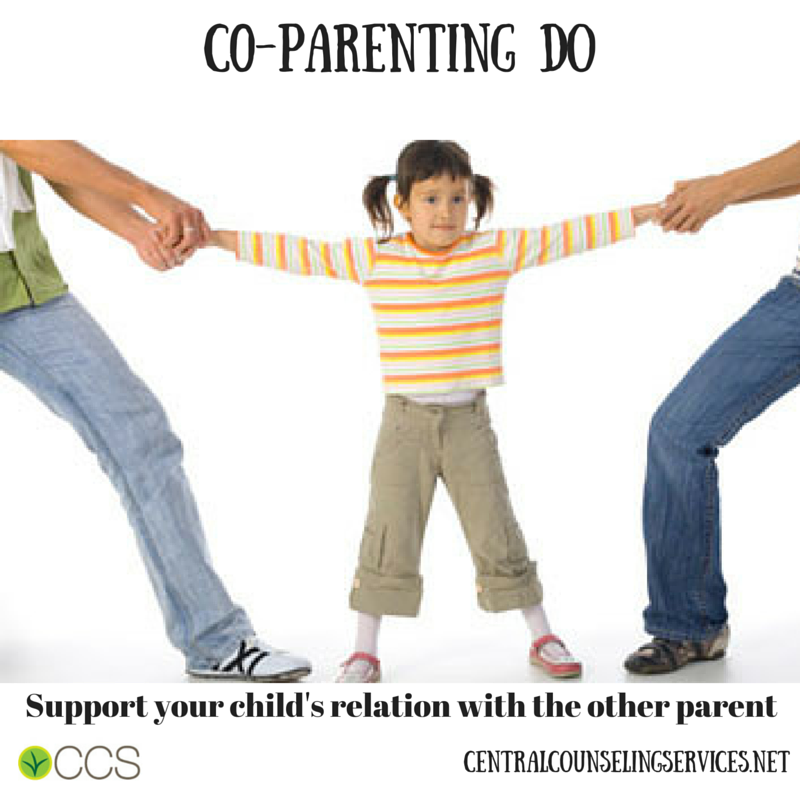
We cannot say how many of these decrees concerned related families who assumed the functions of guardians (custodians), there is no such information. Nevertheless, an analysis of the practice of guardianship and guardianship authorities in the regions shows that the percentage of such returns is high.
This is especially true for grandparents (guardians), who often lack authority over their grandchildren, and this leads to the fact that they cannot cope with raising children, there are even cases of abuse. Conflicts between guardians (custodians), mostly older, and wards (transitional, adolescence 12-17 years old), as well as the lack of compulsory training at school for foster parents, lead to a similar result.
So, for example, during an audit conducted by specialists from the Office of the Presidential Commissioner for Children's Rights in the Tula Region, a more than 2-fold increase in the number of children (12–17 years old) who arbitrarily left foster families (2018 - 4 people) was revealed. ., 2020 - 9pers.).
., 2020 - 9pers.).
The situation is similar in the Kaluga region, where in 2019 there was the most frequent return of adolescent children from 12 to 17 years old who were under the care of relatives of the elderly age group, most of whom did not receive proper training at the candidate school and were not tested for readiness to accept child to the family. As a result, they could not cope with the upbringing of the wards.
“Training, support and accompaniment are essential for all carers, regardless of family ties. Kinship does not yet guarantee that there will be no difficulties in raising a child.
We know many cases when grandparents can't cope during adolescence. The situation can go as far as the cancellation of custody and return, and, unfortunately, this happens.
Two-way traffic is required here. Services responsible for accompanying foster families should build trusting relationships with guardians from the first steps, tell them about what they can expect, what kind of help they can count on, visit, be interested in, invite to various events. Be near. So that when the need arises, they are contacted.
Be near. So that when the need arises, they are contacted.
But there is also a task for the guardians themselves. Overcome the stereotype - "I can handle everything myself, what to teach me" - and in time, without waiting for the crisis to reach its climax, ask for help.
Relatives who have adopted children can also attend foster parents' school after the adoption of the child. This is even more effective in some ways, since they will observe a lot in practice, in parallel with training, - believes Maria Lvova-Belova.
Collages by Oksana Romanova
Source
Legal norms: what to do if children are left without parents or guardianship
Relatives of the murdered Muscovite Irina Kabanova are ready to take her three children under guardianship, said the President of the Volunteers in Helping Children Charitable Foundation Elena Alshanskaya. According to Alshanskaya, Kabanova's first husband intends to take the eldest child, and relatives from Ukraine intend to take the two younger ones.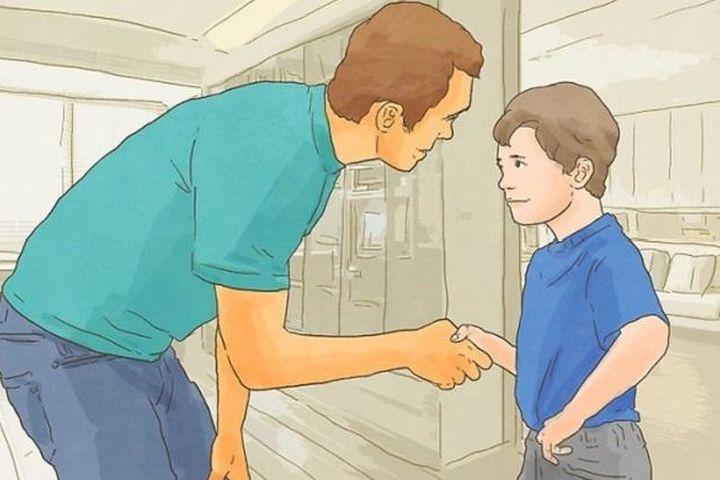
Below is background information on the main forms of placement for children whose parents have died or lost parental rights. The main such forms are adoption and guardianship.
Adoption (adoption)
Adoption (adoption) is a legal institution designed to create a relationship between the adopter and the adopted child that is closest to those that arise between parents and natural children. The law equates an adopted child to the natural children of the adoptive parents, therefore adoption is a priority form of child placement - he receives the same rights and obligations as the natural one, and the adoptive parents assume all parental rights and obligations.
Adoption is carried out by the court at the request of persons wishing to adopt a child, in the order of special proceedings according to the rules of civil procedural legislation. In this, adoption differs from the establishment of custody of a child, the decision on which is made by the guardianship and guardianship authorities.
Orphans and children whose both parents have already been deprived of parental rights may be adopted.
Guardianship (guardianship)
Free guardianship (guardianship) is often established by close relatives over a child whose parents were deprived of parental rights, ended up in places of detention or died. Guardianship can be established over a child under the age of 14, and guardianship is established over adolescents between the ages of 14 and 18.
The guardian exercises control over the preservation and use of the movable and immovable property of the minor child, but does not have the right to dispose of this property. In cases where parents have died, or are in places of deprivation of liberty, or are deprived of their rights, the guardians are paid a child support allowance.
According to the results of a study by the laboratory of social orphanhood of the Research Institute of Childhood of the RDF, which was conducted for a number of years in different regions of Russia, grandmothers most often became guardians - in 88% of cases.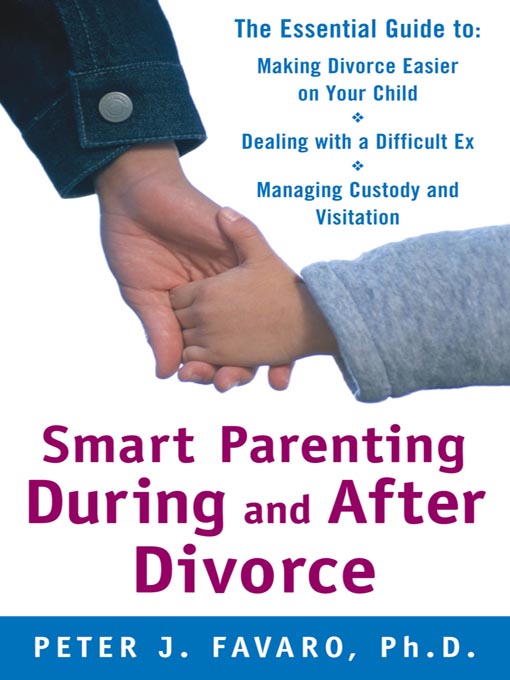 In 12% of cases, grandfathers became them, and there were no more than 2% of strangers among guardians.
In 12% of cases, grandfathers became them, and there were no more than 2% of strangers among guardians.
The guardian is appointed by the guardianship and guardianship authorities, which, in combination, are local governments. Their powers are determined by their statutes. The decision is made by the head of the city or district, including city districts, administration at the place of residence of the guardian. The same procedure applies to trustees. Usually, relatives of the future ward are appointed guardians and trustees, and if they are absent, then persons are appointed at the choice of the relevant authorities.
Guardianship and guardianship authorities identify children left without parental care, keep records of such children and, based on the specific circumstances of the loss of parental care, select forms of placement for children left without parental care, and also exercise subsequent control over the conditions of their maintenance, upbringing and education .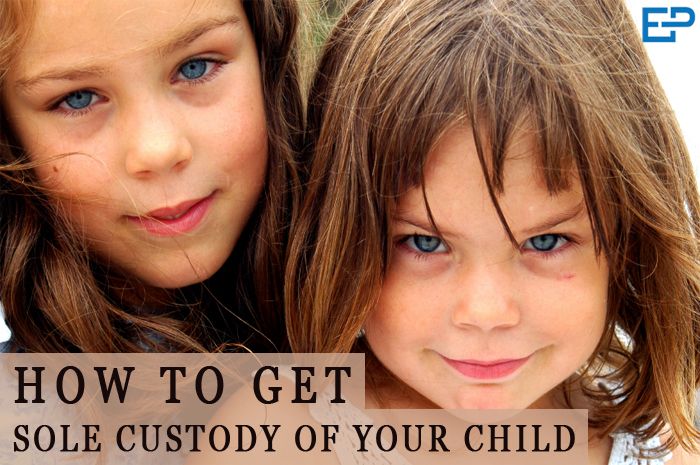
Preliminary guardianship (guardianship)
.
In order to establish preliminary guardianship or guardianship in a timely manner, the relevant authority makes proposals to establish them to citizens who have expressed a desire to be guardians or trustees and are registered.
A temporarily appointed guardian or custodian has all the rights and obligations of a guardian or custodian, with the exception of the right to dispose of the property of the ward on his behalf (give consent for the ward to make transactions to dispose of his property). Preliminary guardianship or trusteeship shall be terminated if, before the expiration of a month from the date of adoption of the act on the temporary appointment of a guardian or custodian, the temporarily appointed guardian or custodian is not appointed as a guardian or custodian in the general manner. In exceptional circumstances, this period may be extended up to two months.
International procedure
If those wishing to adopt (take care of) a child live in the CIS countries, the international procedure for adoption comes into force.


